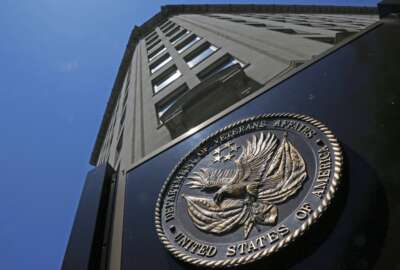VHA says $12B budget shortfall is ‘overestimate,’ still needs more funding to keep hiring
House lawmakers expressed bipartisan frustration with the VA's inaccurate budget forecasts.
The Department of Veterans Affairs is revising its $12 billion supplemental funding request to Congress, meant to cover an estimated shortfall in its health care budget for the rest of the fiscal year.
Senior VA officials told members of the House Appropriations Committee on Wednesday that the department’s initial request for emergency funding was an “overestimate,” and are now working with the Office of Management and Budget on a lower sum.
Congress approved nearly $3 billion in supplemental funds for VA’s Veterans Benefits Administration in September.
VA officials told Congress this summer that it needed more funding, beyond its base budget, to keep paying compensation and pension benefit payments to 7 million veterans and their survivors without interruption.
Lawmakers, however, say VBA ended fiscal 2024 with adequate funding and did not use any of the $3 billion in emergency funds to keep making compensation and pension payments through the end of September.
Instead of running out of money, VBA rolled more than $5 billion in unobligated funds into FY 2025.
Under Secretary for Benefits Joshua Jacobs told the Military Construction, Veterans Affairs and Related Agencies Subcommittee that VBA used its emergency funds in October to issue benefits payments to veterans — but the agency didn’t run out of funding at the end of fiscal 2024, as officials had initially feared.
“While those funds were not immediately used, prudent management compelled VA to request the funding so veterans benefit payments could continue without interruption,” Jacobs said.
The Veterans Health Administration says it still needs additional funding in FY 2025 to continue growing its workforce and keep pace with a record volume of veterans enrolled in VA care.
Lawmakers, however, expressed bipartisan frustration with the VA’s inaccurate budget forecasts.
“This inability to accurately forecast is unacceptable,” Subcommittee Chairman John Carter (R-Texas) said. “Failing to immediately utilize the $3 billion as indicated, it’s kind of a natural question that we would have as to the accuracy of your predictions.”
The VA is delivering more health care and benefits to more veterans than ever before under the PACT Act, breaking previous records. The 2022 law expands VA health care and benefits eligibility for veterans exposed to toxic substances during their military service.
“Clearly, the PACT Act is working. Such success, though, does bring challenges, and one of those is predicting how much all of this will cost,” Subcommittee Ranking Member Debbie Wasserman-Schultz (D-Fla.) said. “Now, I recognize how difficult that can be, but it’s also incredibly concerning that the VA incorrectly estimated its costs.”
Under Secretary for Health Shereef Elnahal said VHA’s $12 billion supplemental request was an “overestimate,” and that the agency “will need less” to cover its costs for the rest of the fiscal year.
“We stayed within the budget, an outcome that we did not expect when we initially submitted our supplemental request to Congress this past July,” Elnahal said.
VHA, he added, deferred some costs to stay within its FY 2024 budget, but told lawmakers “many of the strategies we used are not sustainable in the long run.”
“We cannot continue to delay medical equipment purchases year over year, and we continue to believe that growth in staff, rather than attrition, is needed to meet increases in veteran care demand,” Elnahal said.
“If VA medical care does not receive additional funding in FY 25, VA will be forced to make difficult decisions to remain within the current budget, most notably on outreach, care coordination, and more,” he added.
VHA is looking for more funding to continue to grow its workforce. The agency hired more than 61,000 employees in fiscal 2023 — its fastest rate of growth in 15 years — but pursued a “net-zero growth” model in FY 2024 in anticipation of budget constraints.
“We had to slow hiring,” Elnahal said. “We were still thankfully able to maintain better access, and good outcomes. We’re concerned, though, about our ability to do that if we don’t get additional funds this fiscal year.”
Elnahal said VHA looking to add 5,000 positions to its health care workforce by the end of this fiscal year. He said the vast majority of these new hires would be front-line clinicians “directly serving veterans.”
Copyright © 2024 Federal News Network. All rights reserved. This website is not intended for users located within the European Economic Area.
Jory Heckman is a reporter at Federal News Network covering U.S. Postal Service, IRS, big data and technology issues.
Follow @jheckmanWFED






